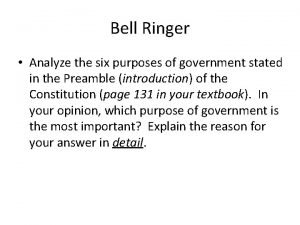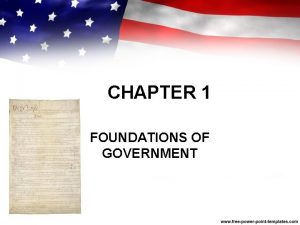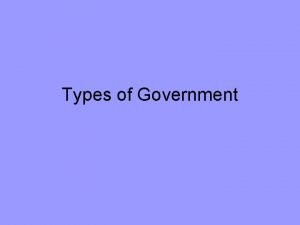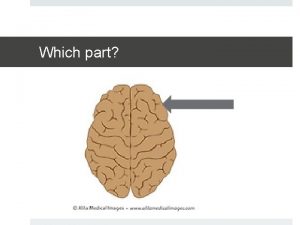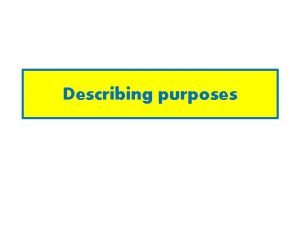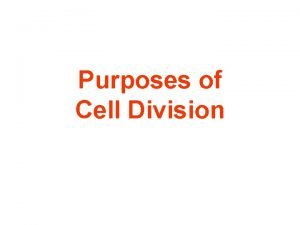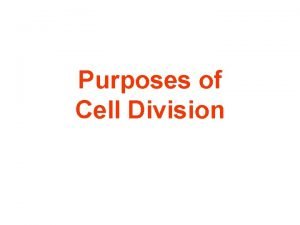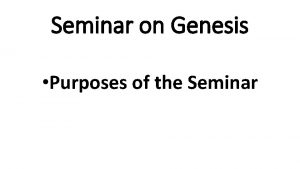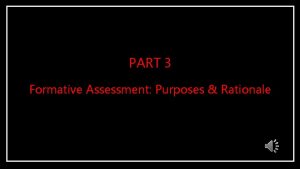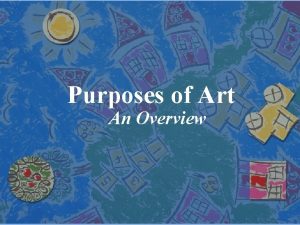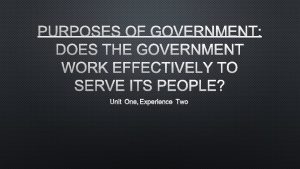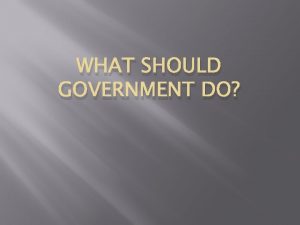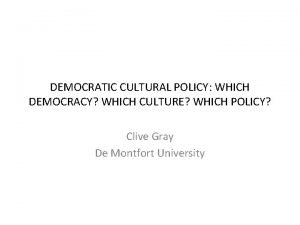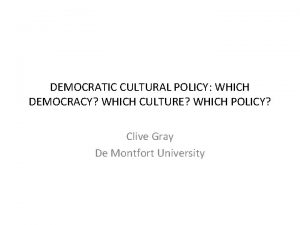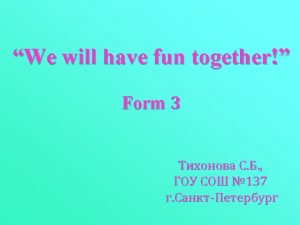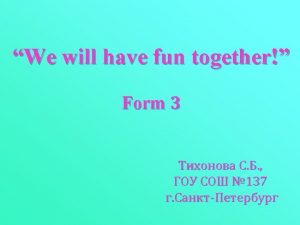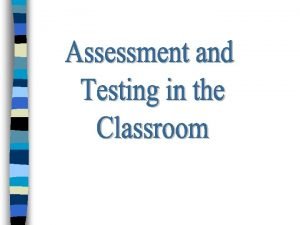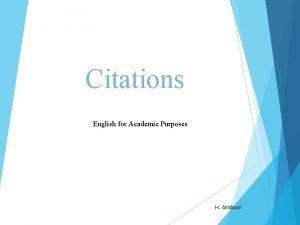THE PURPOSES OF GOVERNMENT What is government Which


















- Slides: 18


THE PURPOSES OF GOVERNMENT • What is government? • Which major characteristics do all states share? • What are the major functions of government? • What theories of rule have been put forth to explain government? Main Idea Understanding major political ideas and classic forms of government will help you understand the purposes of government.

LIFE WITHOUT GOVERNMENT

WHAT IS GOVERNMENT? Government is made up of the formal institutions and processes through which decisions are made for a group of people. 1) People Elected officials with authority and control over others; public servants who carry out day-to-day governmental business 2) Power Legislative to make laws; executive to carry out, enforce, and administer laws; judicial to interpret laws and to settle disputes 3) Policy Decision made by government in pursuit of a goal; can be a law, a government program, or a set of government actions

CHARACTERISTICS OF A STATE State: political unit with the power to make and enforce laws over a group of people living within a clearly defined territory • Population • Must have people; number does not matter • Territory • Must have clearly defined and recognized borders • Government • Must have a government that issues and enforces rules for the people living within its territory; government must be recognized from within and by other nation states in the international community • Sovereignty • Must have supreme power to act within its territory and to control its external affairs



FUNCTIONS OF GOVERNMENT Ensure National Security • Guard its territory and its people against external threats • Create and maintain national defense forces including military personnel, weaponry, and operations, as well as peacekeeping missions • Maintain good relations with other nations (diplomacy)

FUNCTIONS OF GOVERNMENT Maintain Order • Laws help maintain order and protect rights, property, and lives • Must have clear rules for unacceptable behavior and consequences • Different societies have different ideas about lawful behavior and appropriate punishment • Must have means to identify and punish wrongdoers

FUNCTIONS OF GOVERNMENT Resolve Conflict • Some use intimidation and force; most use politics and justice system • Groups try to influence government decisions through politics

FUNCTIONS OF GOVERNMENT Provide Services • People pay taxes to fund services such as parks, mail, and education • Public goods include clean water, parks, and roads; restricted services may include medical care, high schools, and public housing

FUNCTIONS OF GOVERNMENT Provide for the Public Good • Definitions of “public” and “public good” change over time • These questions are addressed through the political process

THEORIES OF RULE Legitimacy of Rulers • What makes some forms of rule more acceptable than others? • Rulers often have legitimacy. They are seen as right and proper by important segments of a nation’s population, so their governance is voluntarily accepted by the people.

THEORIES OF RULE Divine Right • Ruler is believed to be chosen by God or the gods • Believed in ancient China, ancient Egypt, the Inca Empire, the Roman Empire, Japan until the midtwentieth century, and seventeenth-century Europe • European political and religious theory by Bossuet argued for the divine right of kings

THEORIES OF RULE Natural Law and Natural Rights • Natural law is a system of rules derived from the natural world. • Natural law binds citizens and rulers alike. • All people possess natural, or human, rights. • Supported by Aristotle, Cicero, Augustine, and Thomas Aquinas

THEORIES OF RULE The Social Contract • Social contract theory: governments formed when people agreed to submit to state authority in return for protection and support • Government is legitimate only so long as the power is given to the state. • Contributed to by Hobbes, Locke, and Rousseau


ADVICE IS FREE Don’t Rush To Grow Up When you reach your teenage years, you might wish to be treated more like an adult; to be given more independence and more say over your life. Growing up should just happen by itself. In all honesty, you should try to embrace your childhood for as long as you can because this is the time when you should have the most carefree of your days on this Earth.
 What are the six purposes of government
What are the six purposes of government Guided reading activity foundations of government lesson 1
Guided reading activity foundations of government lesson 1 The purposes of government
The purposes of government Hình ảnh bộ gõ cơ thể búng tay
Hình ảnh bộ gõ cơ thể búng tay Ng-html
Ng-html Bổ thể
Bổ thể Tỉ lệ cơ thể trẻ em
Tỉ lệ cơ thể trẻ em Voi kéo gỗ như thế nào
Voi kéo gỗ như thế nào Tư thế worm breton là gì
Tư thế worm breton là gì Chúa sống lại
Chúa sống lại Môn thể thao bắt đầu bằng chữ f
Môn thể thao bắt đầu bằng chữ f Thế nào là hệ số cao nhất
Thế nào là hệ số cao nhất Các châu lục và đại dương trên thế giới
Các châu lục và đại dương trên thế giới Công của trọng lực
Công của trọng lực Trời xanh đây là của chúng ta thể thơ
Trời xanh đây là của chúng ta thể thơ Mật thư anh em như thể tay chân
Mật thư anh em như thể tay chân Làm thế nào để 102-1=99
Làm thế nào để 102-1=99 độ dài liên kết
độ dài liên kết Các châu lục và đại dương trên thế giới
Các châu lục và đại dương trên thế giới
